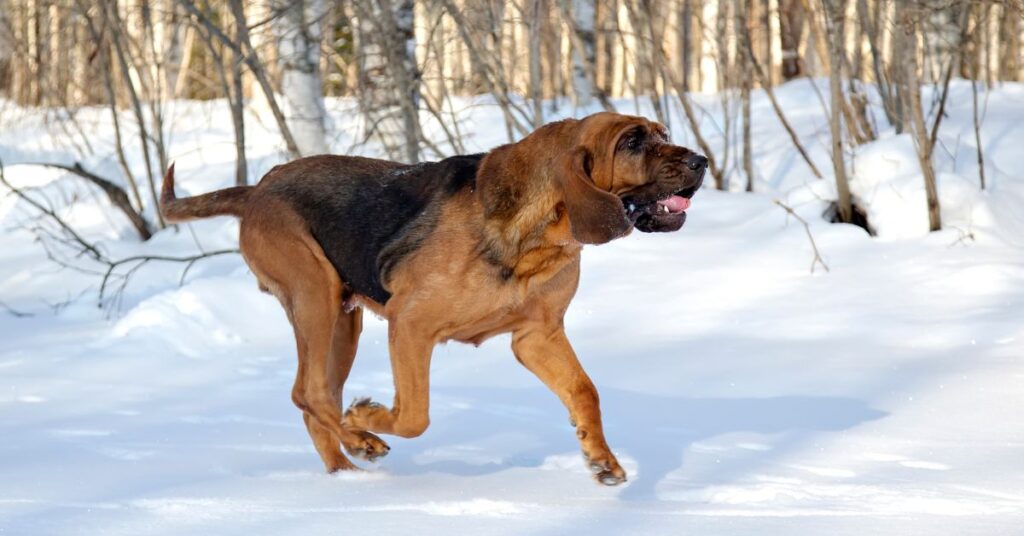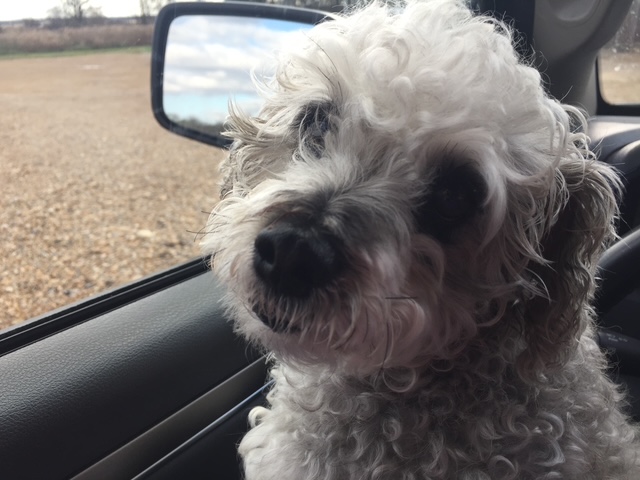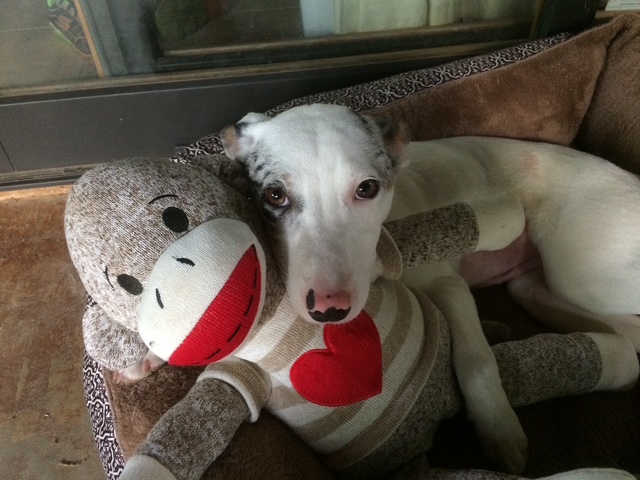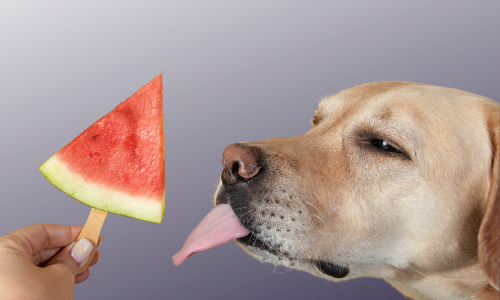The Bloodhound is a remarkable breed known for its extraordinary sense of smell and gentle demeanor. This comprehensive guide provides detailed information about the Bloodhound, covering everything from breed characteristics to care requirements.
*Disclaimer: This Post May Contain Affiliate Links. This Means That I Receive A Small Commission At No Extra Cost To You Should You Click Through And Make A Purchase. Learn More On My Policy Page
Breed Characteristics
Breed Category: Hound Group
Size: Large
Coat Length: Short and dense
Shedding: Moderate
Hypoallergenic: No
Grooming Requirements: Low; regular brushing needed
Life Span: 10-12 years
Activity Level: High
Temperament/Personality: Gentle, affectionate, determined
Intelligence: High
Trainability: Moderate; requires patience and consistency
Space Requirement: Large; suitable for homes with yards
Compatibility with Children & Other Pets: Excellent with proper socialization
Health Issues: Hip dysplasia, elbow dysplasia, bloat, ear infections
Nutrition Needs: High-quality diet with balanced nutrients
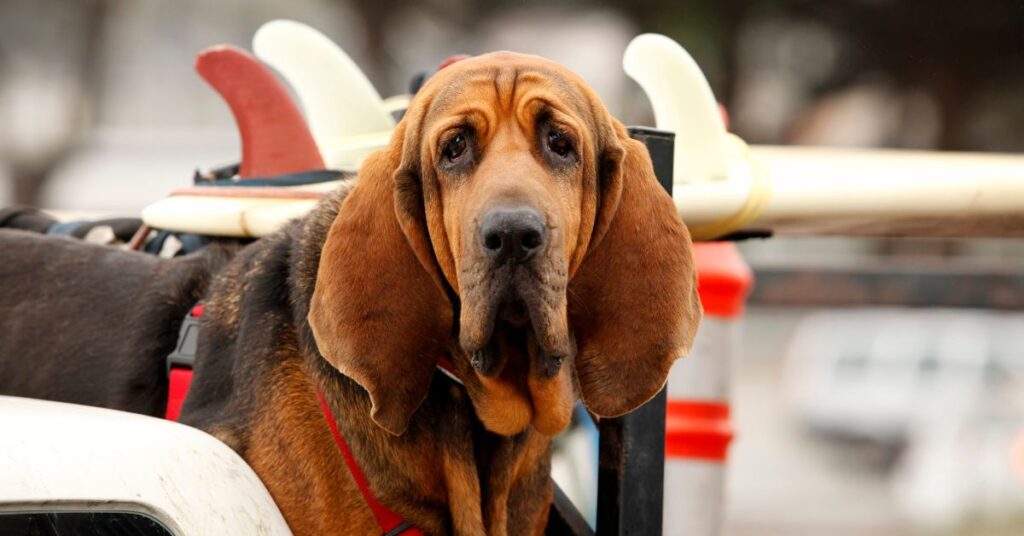
Origin and History
The Bloodhound has a long and storied history, dating back to medieval Europe. Originally bred by monks in Belgium, the breed was used for tracking and hunting. The Bloodhound’s exceptional scent-tracking abilities made it highly valued for finding game and later for law enforcement purposes. The breed’s name is derived from the term “blooded hound,” indicating its noble lineage. Over the centuries, the Bloodhound has earned a reputation as one of the most skilled scent hounds, capable of following trails that are days old.
Appearance and Physical Characteristics
The Bloodhound is a large and powerful dog with a distinctive appearance. Adults typically weigh between 80 to 110 pounds and stand about 23 to 27 inches tall at the shoulder. They have a short, dense coat that is usually black and tan, liver and tan, or red. Their loose, wrinkled skin, long ears, and soulful eyes give them a unique and endearing expression. The Bloodhound’s body is strong and muscular, built for endurance and strength. Their long, drooping ears help funnel scents towards their nose, enhancing their tracking abilities.
Temperament and Personality
Bloodhounds are known for their gentle and affectionate nature. They are incredibly devoted to their families and are excellent with children and other pets. Despite their size, they are gentle giants who thrive on human companionship. Bloodhounds are determined and focused, especially when following a scent. This breed is also known for its stubbornness, which can make training a challenge. However, their loyalty and loving disposition make them wonderful family pets.
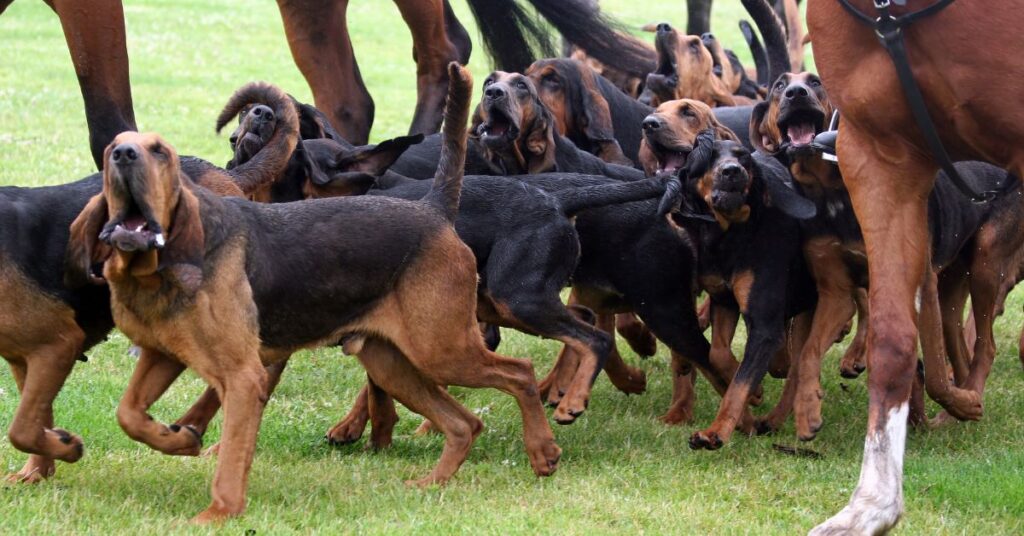
Intelligence and Trainability
The Bloodhound is highly intelligent but can be independent and strong-willed. Training requires patience, consistency, and a gentle approach. Positive reinforcement techniques work best with this breed. Due to their exceptional sense of smell, Bloodhounds can become easily distracted by interesting scents, making recall training particularly important. Early socialization and training are crucial to ensure they grow into well-behaved adults. Their tracking abilities can be harnessed in activities like search and rescue, trailing, and scent work.
Compatibility with Children and Other Pets
Bloodhounds are known for their friendly and tolerant nature, making them excellent companions for children and other pets. They are patient and gentle, but their large size means supervision is necessary when interacting with young children. Bloodhounds generally get along well with other dogs and can coexist peacefully with cats and other small animals when properly introduced and socialized from a young age.
Health and Nutrition
Bloodhounds are generally healthy but can be prone to certain health issues such as hip dysplasia, elbow dysplasia, bloat, and ear infections. Regular veterinary check-ups and maintaining a healthy weight are essential for their well-being. Their long ears should be checked and cleaned regularly to prevent infections. A balanced diet with high-quality dog food is crucial to meet their nutritional needs. Monitoring their food intake and ensuring they don’t overeat can help prevent obesity-related problems.
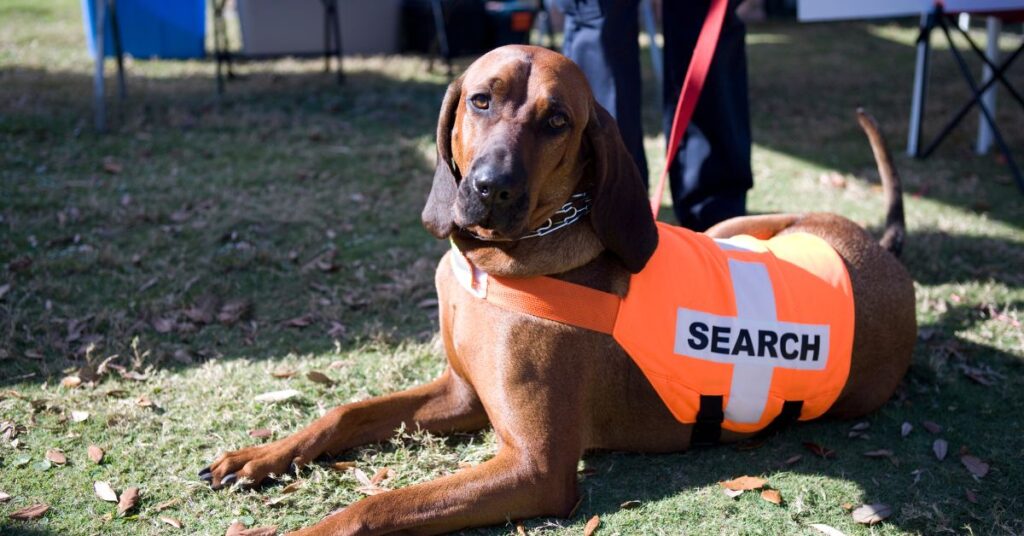
Exercise and Activity Level
Bloodhounds have high exercise needs and require regular physical activity to stay healthy and happy. Daily walks, playtime, and mental stimulation are essential to meet their exercise requirements. Due to their strong tracking instincts, they enjoy activities that involve using their nose, such as scent trails and tracking games. Providing them with opportunities to exercise and explore can help prevent boredom and destructive behaviors.
Grooming Needs
The grooming needs of the Bloodhound are relatively low. Their short, dense coat requires regular brushing to remove loose hair and keep their coat healthy. Bathing should be done as needed, but not too frequently, to avoid stripping the natural oils from their skin. Routine care such as dental hygiene, ear cleaning, and nail trimming is also important. Their long ears require special attention to prevent infections, and their facial wrinkles should be kept clean and dry.
Training and Socialization
Early socialization and consistent training are crucial for the Bloodhound. Exposure to various people, animals, and environments helps them develop into well-adjusted adults. Training should focus on positive reinforcement techniques, as they respond best to gentle and encouraging methods. Engaging them in activities that stimulate their intelligence and provide social interaction can be beneficial. Consistency and patience are key to successfully training this breed.
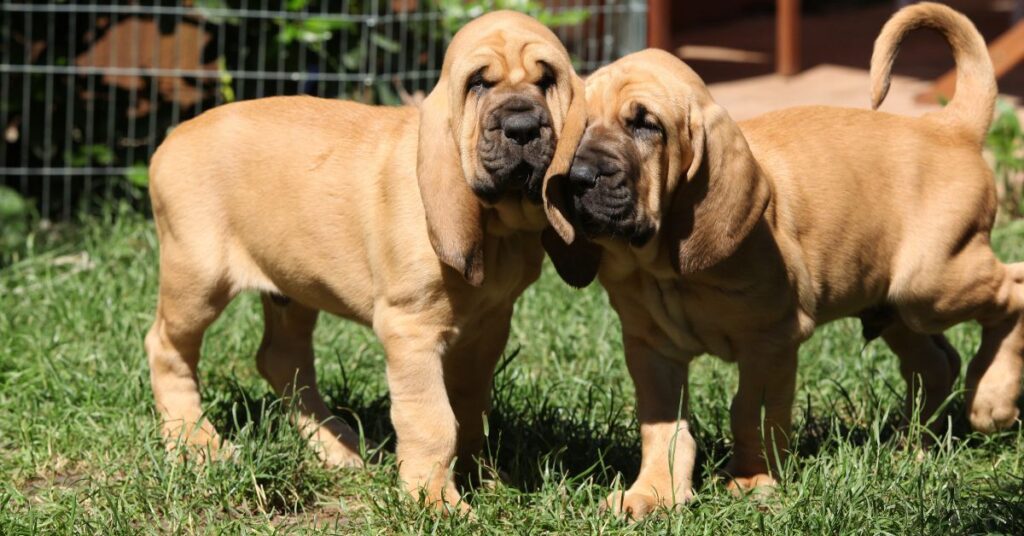
Famous Bloodhounds
The Bloodhound has gained fame in various roles, particularly in law enforcement and search and rescue. Their incredible tracking abilities have made them invaluable in finding missing persons and tracking criminals. Bloodhounds have also been featured in literature and film, showcasing their unique talents and gentle nature. Notable Bloodhounds have made their mark in history by assisting in high-profile cases and search operations.
Conclusion
The Bloodhound is a gentle, affectionate, and determined breed with a rich history and exceptional tracking abilities. While their exercise and grooming needs are moderate, their loyalty and loving disposition make them wonderful companions for families and individuals alike. With proper care, training, and socialization, the Bloodhound can be a devoted and endearing member of the family.


